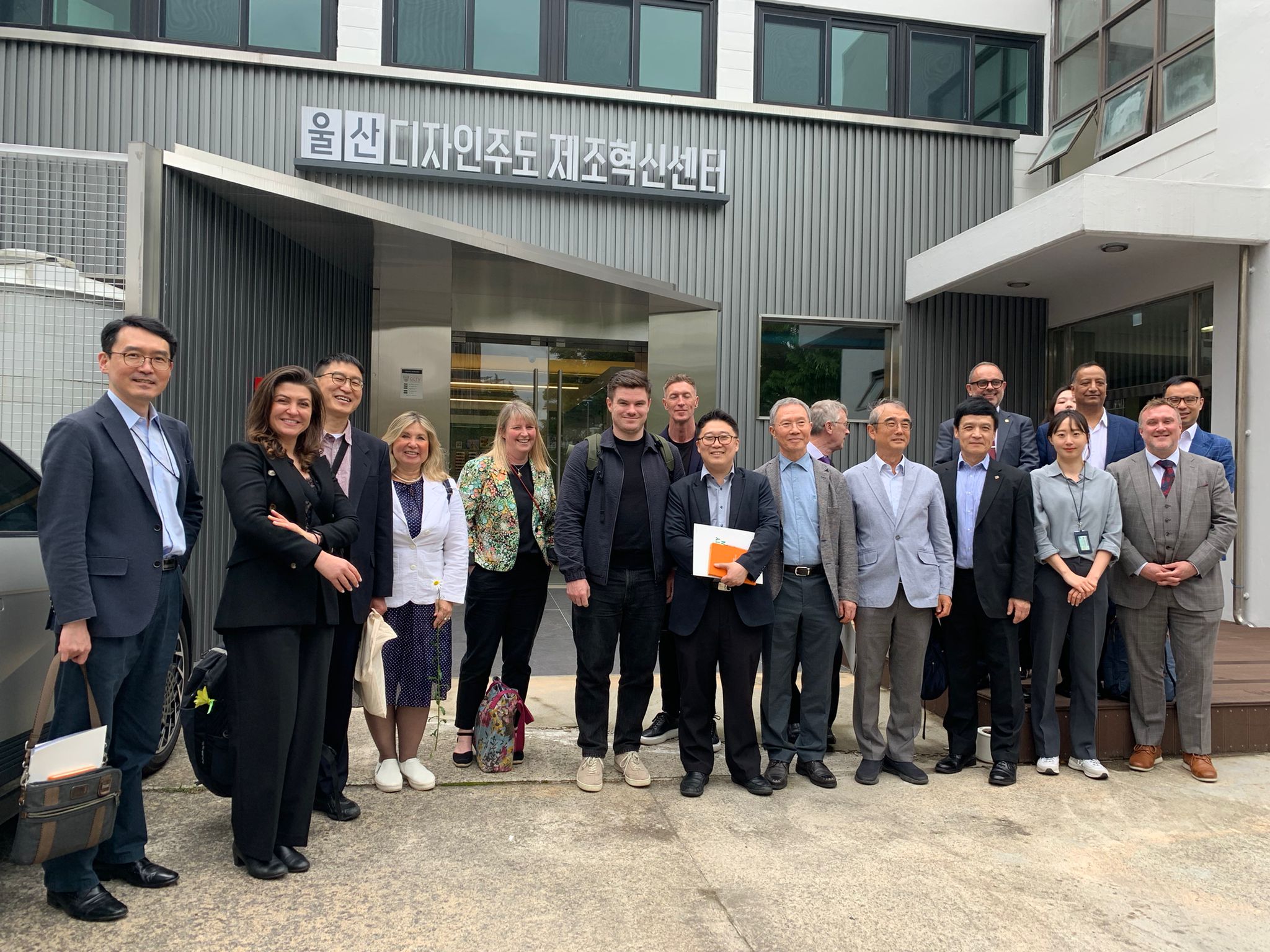
Birmingham is embarking on a collaborative project with Ulsan, South Korea, propelled by the DIATOMIC regional innovation accelerator project. This initiative is unlocking new pathways for city stakeholders to engage in joint research projects, explore international market opportunities, and advance policies focused on growth, inclusivity, and sustainability. This collaboration aims to make Birmingham smarter, cleaner, and more connected.
This project signals a leap towards the future of urban innovation. The Digital InnovAtion TransfOrMatIve Change (DIATOMIC) project, funded by Innovate UK, is extending its horizon to Ulsan, South Korea. This project aims to create a city-to-city demonstrator showcasing research, fostering business -to-business relationships, and encouraging innovation and collaboration within and between both cities’ innovation ecosystems. DIATOMIC is among the five innovation accelerator projects managed by the West Midlands Combined Authority (WMCA) on behalf of UK Research and Innovation (UKRI) to bolster the region’s innovation and R&D capability and capacity to spark commercial growth and investment.
This bold initiative focuses on clean tech and the circular economy within a smart urban policy context. Activities across these themes include academic collaboration, open innovation challenges for UK and South Korean businesses, and policy dialogues between public authorities.
The United Kingdom and the Republic of Korea stand as global leaders in science and technology, with both nations investing significantly in research and development. This foundation of innovation underpins the Birmingham-Ulsan collaboration, which began in 2022 with the ‘Innovation Twins’ project funded by Innovate UK. DIATOMIC elevates this partnership to new heights, with the Connected Places Catapult leading the way. This project demonstrates the strength of international collaboration in tackling sustainable urban development challenges.
The recent visit of Birmingham delegates to Ulsan in May 2024 further solidified this partnership. During the visit, key stakeholders from both cities engaged in productive discussions, exploring opportunities for collaboration in clean tech, industrial symbiosis, hydrogen technology, and smart city innovations. The delegation met with Ulsan Metropolitan City Government, Ulsan Techno Park (UTP), University of Ulsan, Ulsan Centre for Creative Economy and Innovation (UCCEI), Ulsan National Institue for Science and Technology, and Hyundai Motors. These meetings highlighted mutual interests and laid the groundwork for future joint projects.
Raj Mack emphasized the significance of this collaboration, stating, “Through this collaboration, we aim to unlock new smart city horizons in clean tech and the circular economy, strengthening our local innovation ecosystem and at the same time connecting it with a transnational peer.”
Summary of Key Outcomes from the Visit:
Civic Engagement: Strengthening policy and strategy exchange for sustainable development.
Business Relationships: Exploring collaborative opportunities in industrial symbiosis and clean tech.
Research Collaborations: Building strong academic ties and joint research initiatives between Birmingham and Ulsan universities.

